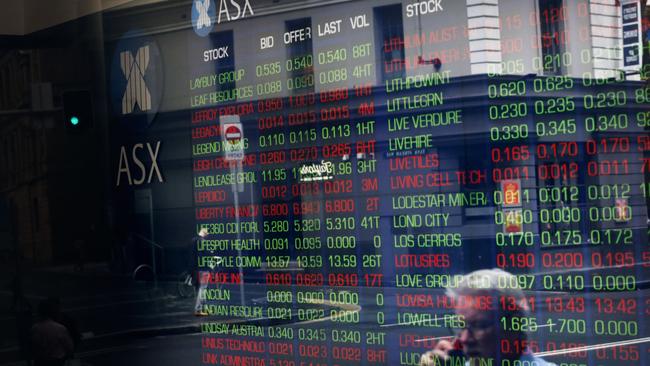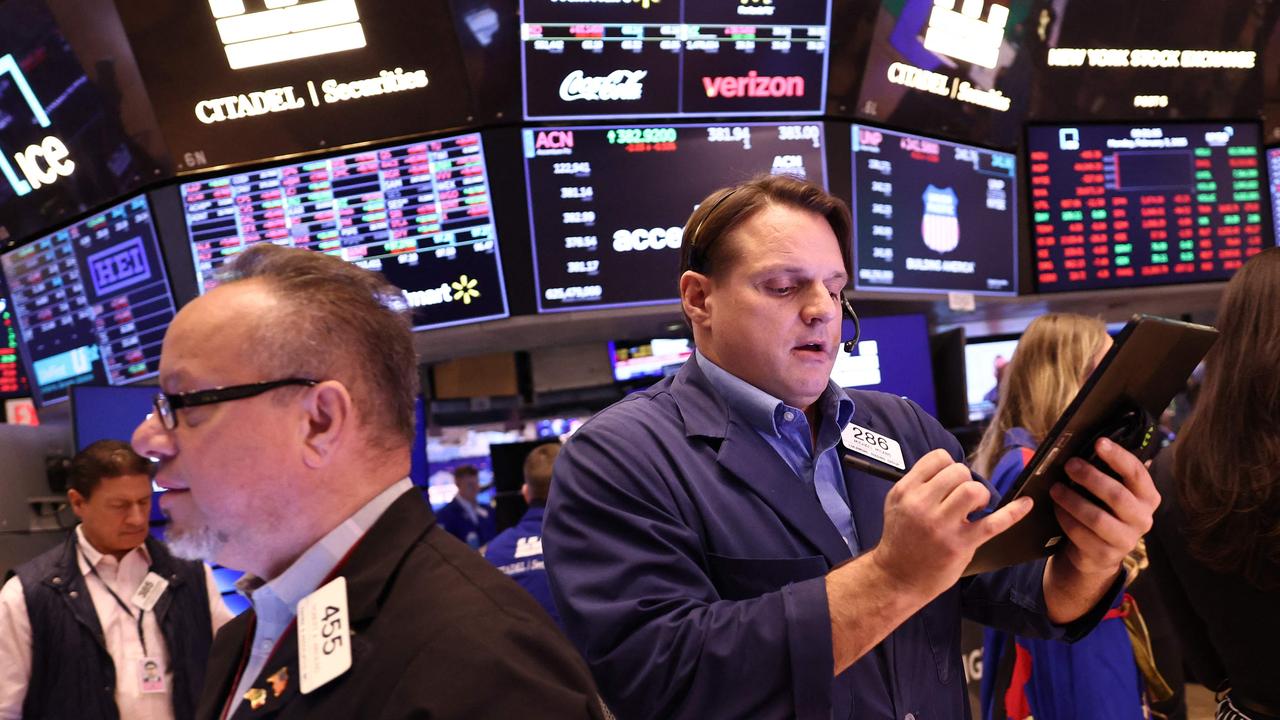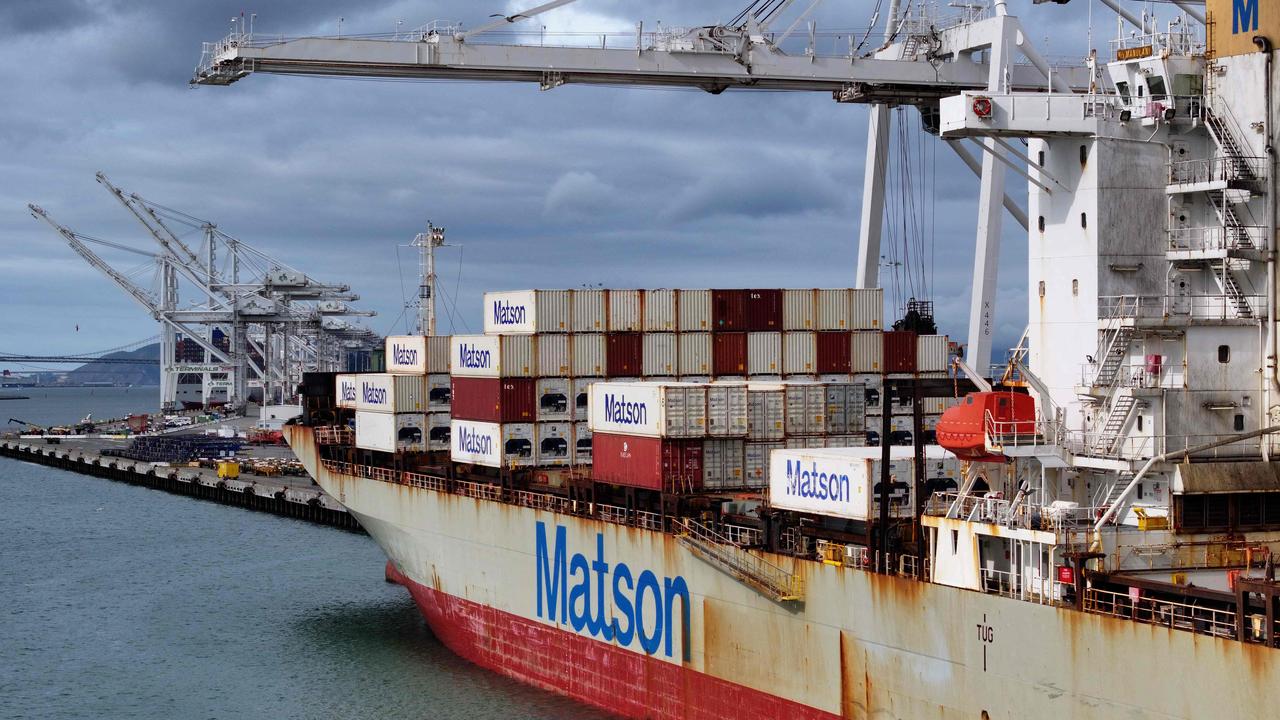
Australia’s sharemarket has surged to record highs as earnings season kicks off, with Rio Tinto having scope to boost its dividend on the back of booming iron ore prices when it reports on Wednesday.
After consolidating recently amid Covid-19 lockdowns, the S&P/ASX 200 index hit a new record high of 7447.9 points on Tuesday before closing up 0.5 per cent at a record daily close of 7431.4.
Resources and banks gave the market a boost, while growth and defensive stocks took a breather.
BHP rose 2.8 per cent to a record high close of $53.65 and Rio Tinto gained 1.8 per cent to $132.47 as copper prices surged and iron ore stayed near record highs above $US200 a tonne.
Rio Tinto was due to report its first half earnings after the close on Wednesday.
OZ Minerals rose 6.5 per cent on a strong production report and BlueScope Steel rose 6.4 per cent after reporting its best underlying earnings since its demerger in 2002.
CBA led banks with a 1.6 per cent rise to $US100.71 despite worries about the impact of lockdowns.
It came as Wall Street continued to hit record highs amid better-than-expected US earnings reports and expectations the Federal Reserve will vow to provide more support if needed.
But there was some caution about a plunge in Chinese shares amid a broadening regulatory crackdown that has hit China’s technology, education and real estate sectors. The Shanghai Shenzhen CSI 300 index dived 3.5 per cent at an eight-month low of 4751 points, having fallen 6.7 per cent in the past two days as China ramped up regulations.
Hong Kong’s Hang Seng index dived 4.4 per cent after dropping 4.1 per cent on Monday.
The Hong Kong Tech index dropped 6.6 per cent with Tencent down 9 per cent after its music arm was forced by the government to give up exclusive streaming rights and pay fines.
“Being exposed to the region’s equities right now, especially in those areas of the market that are currently catching the ire of Beijing, is like playing a game of chicken with Chinese authorities,” said IG market analyst Kyle Rodda. “They are unlikely to drive their tech giants into the ground – they are too economically and strategically important – but no one knows how far they’ll go to make their point.”
With the NSW lockdowns continuing amid rising Covid numbers, analysts were wary of cautious outlook statements from domestic-facing cyclical companies. The escalating and extending lockdown in NSW has enhanced focus on risks, while costs are rising, and crisis assistance hasn’t been overwhelming, according to Morgan Stanley’s Chris Nicol.
He said the results season could be volatile for domestic-facing sectors with the scrutiny on margins.
AMP Capital chief economist Shane Oliver said Australia was “risking a return to recession”.
But, while the lockdown was taking longer than expected and may need to be tightened, economic recovery should continue when increased vaccination allows a more sustained reopening.
“Sharemarkets have proven relatively resilient because there is now more evidence of the ability of science and medicine to control the virus, the Delta variant is seen as driving easier for longer fiscal and monetary policy and US June quarter results are again coming in far stronger than expected.”
Macquarie analysts singled out JB Hi-Fi and GPT Group as some of the companies at risk.
With no certainty around when NSW lockdowns will end, the financial impact of store closures, supply chain disruptions, inventory levels and increased costs will be in focus in JB Hi-Fi’s results.
GPT Group also has downside risk to earnings after withdrawing guidance due to Covid lockdowns.
“Downside exists to earnings, and the ability for landlords to reduce costs in fiscal 2021 to counter rental headwinds is likely to be more limited than last year,” Macquarie analysts said.
Banks have “limited upside” this profit season, according to Macquarie’s Victor German.
Notwithstanding “relative valuation support” (ex-CBA) and “potential positives” from loan volume growth and capital generation, he saw “near-term risk to the sector’s performance”.
“Low reported impairment charges, potential capital management, and promises to become more cost-efficient are unlikely to drive further share price re-rating,” he said.
With the extent and duration of Sydney’s lockdown unknown, he said the risk of material losses had “increased” and falling bond yields were expected to cause “ongoing margin pressures”.






